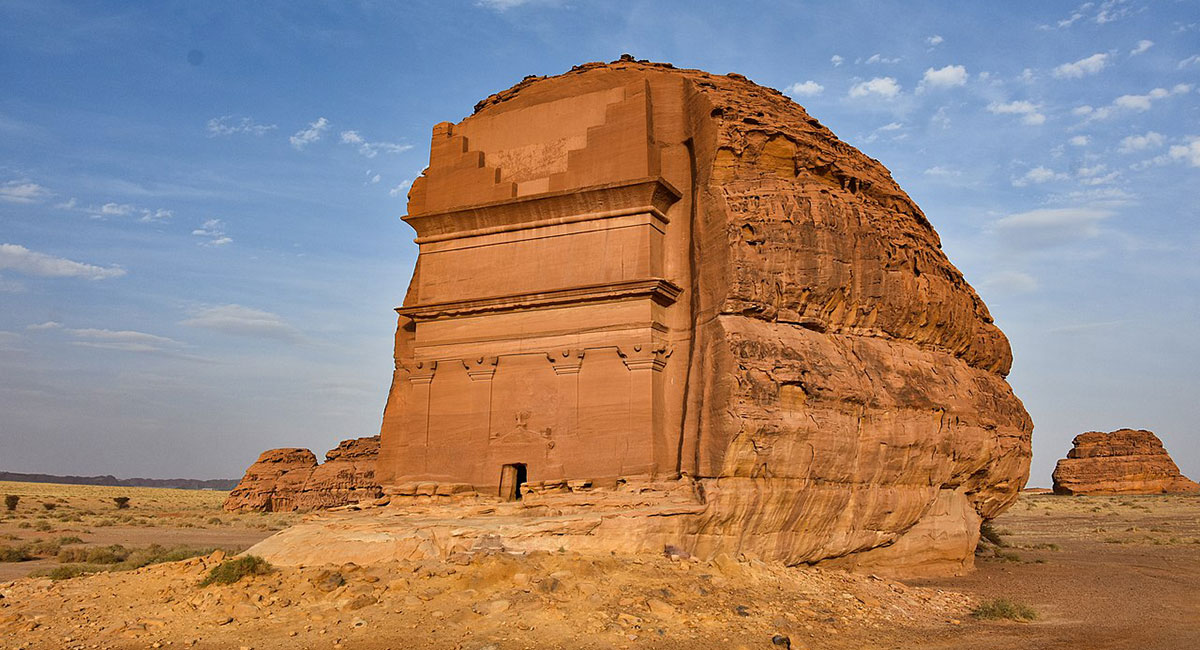I recently traveled through parts of Saudi Arabia—from Riyadh, the capital, to Jeddah on the Red Sea (the gateway to Islam’s holy cities, Mecca and Medina), and then through the northwestern desert as far as Hegra, a breathtaking archaeological site dating back more than 2,000 years to the ancient Nabataeans. My trip, for the record, was not a government-sponsored public relations junket.
Mohammed bin Salman, the crown prince who took control of the kingdom almost eight years ago, intends to shake off the dust of religious insularity and modernize the Saudi economy, which, despite its robust size—at a bit more than $1 trillion a year, ranking it as the 20th-largest economy in the world—remains relatively underdeveloped, overwhelmingly wed to oil revenue. He calls his plan “Vision 2030.”
Allowing for obvious differences, the modernization effort is equivalent in ambition to what Emperor Meiji did in Japan in the 19th century and what Kemal Ataturk and Deng Xiaoping did in Turkey and China, respectively, in the 20th century. The important word is “ambition” because it’s not yet a reality.
The idea is to open up the economy and end its dependence on oil and gas; modify the existing fundamentalist tradition, which dates back to the alliance between Saudi authorities and Wahhabism in the 18th century; and globalize Saudi Arabia, placing it among the world’s powers. The challenge the crown prince faces is to accomplish this hat trick without weakening the overwhelming power of the monarchy.
The modernization is clearly noticeable in how people dress, talk, interact, and passionately absorb what the world beyond the Arabian Peninsula has to offer.
But several factors continue to conspire against the changes: (1) deeply entrenched traditions that have forced the crown prince to move slowly to prevent the fundamentalists from stirring up unrest among those who cling to the old customs, (2) state capitalism, which, despite significant privatization, gives the government inordinate sway over the economy through its sovereign wealth fund and (3) the concentration of political power in very few hands, with many among the former elite (some of whom were arrested when the crown prince was named heir to the throne and forced to give back large amounts of money they allegedly obtained corruptly) feeling displaced.
The government appears popular, seen as the liberator of a people who previously were subjected to a privileged, corrupt, immobile caste system.
This is especially true for Saudi women, who, despite old customs and family pressures, are no longer obliged to wear traditional clothes or do the Hajj pilgrimage to Mecca accompanied by a male guardian. Now, they can drive, attend mass public gatherings, and deal with financial institutions without intermediaries.
The police mostly turn a blind eye to what young Saudis wear or how they conduct themselves at music festivals and similar gatherings. While homosexuality remains illegal, the morality authorities no longer aggressively enforce the law the way they have in the past. One senses that even alcohol, still largely prohibited, will eventually be broadly available in certain areas, as happened in the United Arab Emirates.
There is a thirst for prosperity among the young and, more generally, a determined drive to catch up in everything from technology to sports and the arts.
Riyadh also has modified its foreign policy—making deals with its enemy in Yemen, seeking rapprochement with Iran, engaging Qatar and, before the Hamas attacks, even discussing possible deals with Israel. Although it has received billions in military assistance from the United States, it’s keeping its options open and is closely engaging China as well. Everything has the singular goal of avoiding possible sources of instability, conflict or financial stress that could derail the transformation.
The crown prince even has taken responsibility for human rights abuses committed in recent years by the secret services, including the killing of activist journalist Jamal Khashoggi.
But don’t get me wrong: We are not witnessing the birth of liberal democracy—rather, a major update in every sense except the political one.
The idealist in me wants to believe that the project will succeed and will bring, with changes in thinking and economic openness, more political liberty. The skeptic in me says there is still too much distance between ambition and reality and that if the oil reserves begin to decline in the not-too-distant future, as some Western observers foresee, and the country fails to diversify in time, the transformation will fail.
One senses the tension between tradition and modernity at every level. So, much will depend on how popular the crown prince remains. He still has many potential enemies within the royal family, the business community, the military and among the hard-core fundamentalists. Be that as it may, if the Saudis can succeed, perhaps others will be emboldened to try as well.













